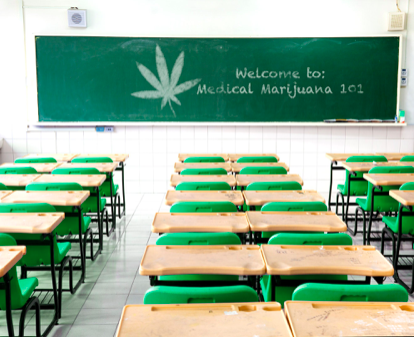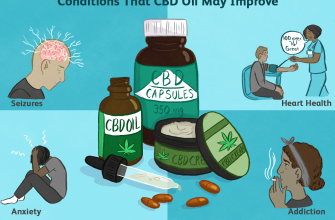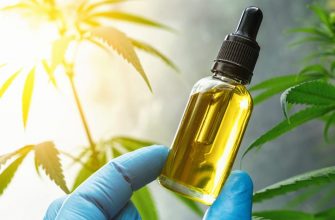- A Brief History of the Medical Community and Marijuana
- Almost none of the doctors receive a formal education about cannabis
- No Formal Marijuana Education Means Fewer Medical Marijuana Prescriptions
- The current state of education about medical marijuana
- Conclusion: Should Medical Schools Start Teaching About Cannabis?
More and more laws are being passed regarding medical marijuana. It has already been legalized in 29 US states. Despite all this legislative progress in medical and recreational marijuana, doctors are often ill-equipped to discuss the facts of medical marijuana, or discuss its benefits.
Consequently, doctors and patients are wondering: Should medical schools start teaching about marijuana? With so many new marijuana drugs, rising popularity, and progress in their research internationally, the time has come for the American medical community to educate doctors about our beloved cannabis.
A Brief History of the Medical Community and Marijuana
There is a lot of ambiguity when it comes to doctors, marijuana, and big pharmaceuticals.
As Alan Hirsch of the cannabis scientific society, Diagnostic Lab Corporation, explains, “Big Pharma is lobbying for legalization on supposed safety grounds, but they’re really just buying time to create their synthetic marijuana preparations.”
Big Pharma has a rather controversial relationship with marijuana. Also, thanks to its campaign to end the legalization of marijuana, big pharma is preventing doctors from accessing the herb. This makes it difficult to prescribe it and learn about its benefits.
Almost none of the doctors receive a formal education about cannabis
As the High Times reported in September, 90 percent of doctors learn nothing about medical marijuana in medical school, according to a study published in the Journal of Drugs and Alcohol Addiction.
This makes sense considering that only nine percent of medical schools have a curriculum that deals with medical marijuana. These numbers come from the Association of Medical Colleges.
They compiled the results of 100 medical schools that polled their students about marijuana education. The vast majority of medical students claim to have been ill-equipped to prescribe marijuana.
The study also found that 25 percent would not feel comfortable even discussing marijuana with their patients.
CBD hemp oil crystalline – hemp seed oil, …
Price
Original price before discount€30.00
Price: €24.99
2186.63 ₽
854.91 ₴
CBD hemp oil crystalline - hemp seed oil, ...
Price
Original price before discount€42.90
Price: €26.99
2361.63 ₽
923.33 ₴
CBD oil crystalline - hemp seed oil enriched ...
Price
Original price before discount€72.90
Price: €44.99
3936.63 ₽
1539.11 ₴
No Formal Marijuana Education Means Fewer Medical Marijuana Prescriptions
The consequences of not knowing marijuana are wide-ranging. To prescribe a drug, doctors must formally examine the substance beforehand.
This means that, by law, most doctors cannot prescribe medical marijuana to their patients. In addition, marijuana in all forms from oils to moonrocks is illegal at the federal level, meaning doctors can lose their license to prescribe marijuana in the first place, or even go to court for administering what is still categorized as Schedule I substance.
Should medical schools start teaching about marijuana? Since schooling will allow more prescriptions for medical marijuana to be prescribed, the answer is clear. YES.
The current state of education about medical marijuana

The vast majority of medical students do not have access to these programs. However, several universities are starting to offer courses in medical marijuana.
The topics of these courses range from the legality of marijuana to the use of medical marijuana. Schools teaching this curriculum are UC Davis, the University of Vermont, Ohio State University, and the University of Washington.
And now, with national legalization on the horizon, Canadian marijuana education is going even bigger with the marijuana cultivation course offered at Dieppe College in New Brunswick. The Canadian government even supports this course. With the demand for marijuana following legalization this summer, the Canadian government is looking to produce a qualified marijuana workforce.
The government even let the first 25 students register for free enrollment in the course.
Conclusion: Should Medical Schools Start Teaching About Cannabis?
Information about medical marijuana is far from accessible. Although some progressive universities offer marijuana education courses, higher education has yet to catch up with legalization efforts.
Before taking courses, US medical professionals cannot, by law or in good conscience, prescribe medical marijuana.
Until then, few of the 25 million Americans who suffer from daily pain and those seeking alternative treatments for conditions such as cancer have access to a natural remedy with scientifically proven benefits.
Source: https://hightimes.com/health/medical-schools-teaching-cannabis/




